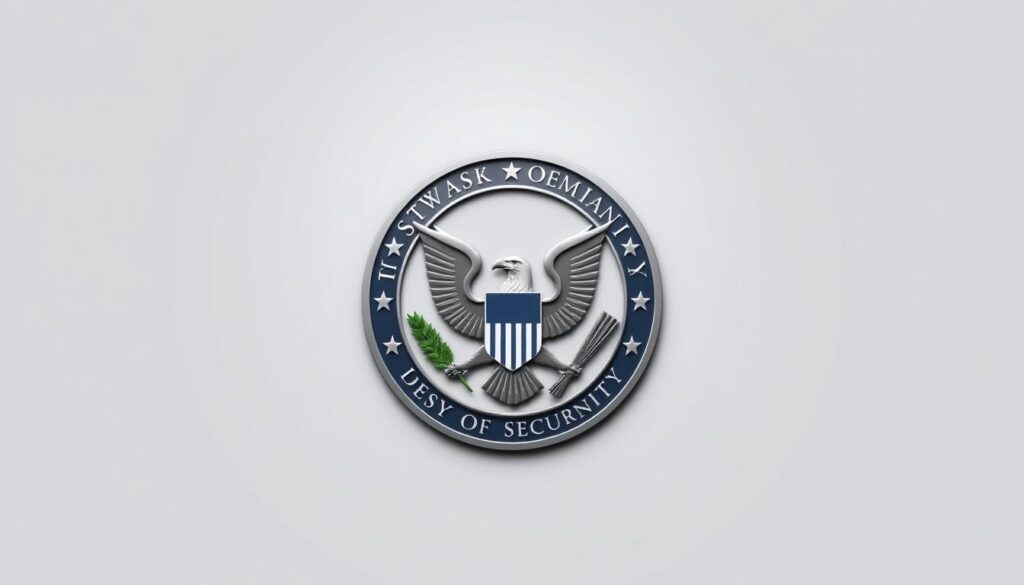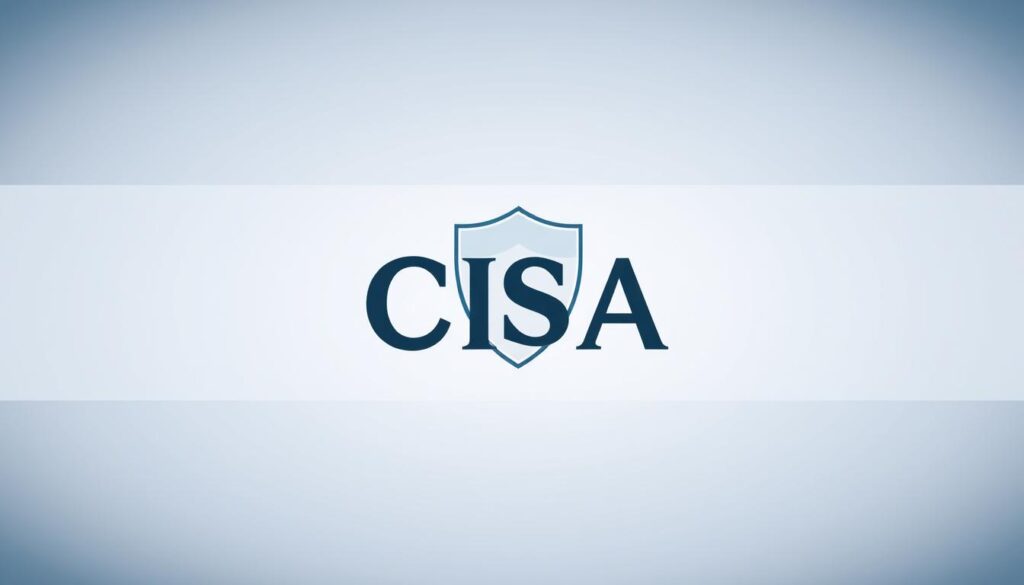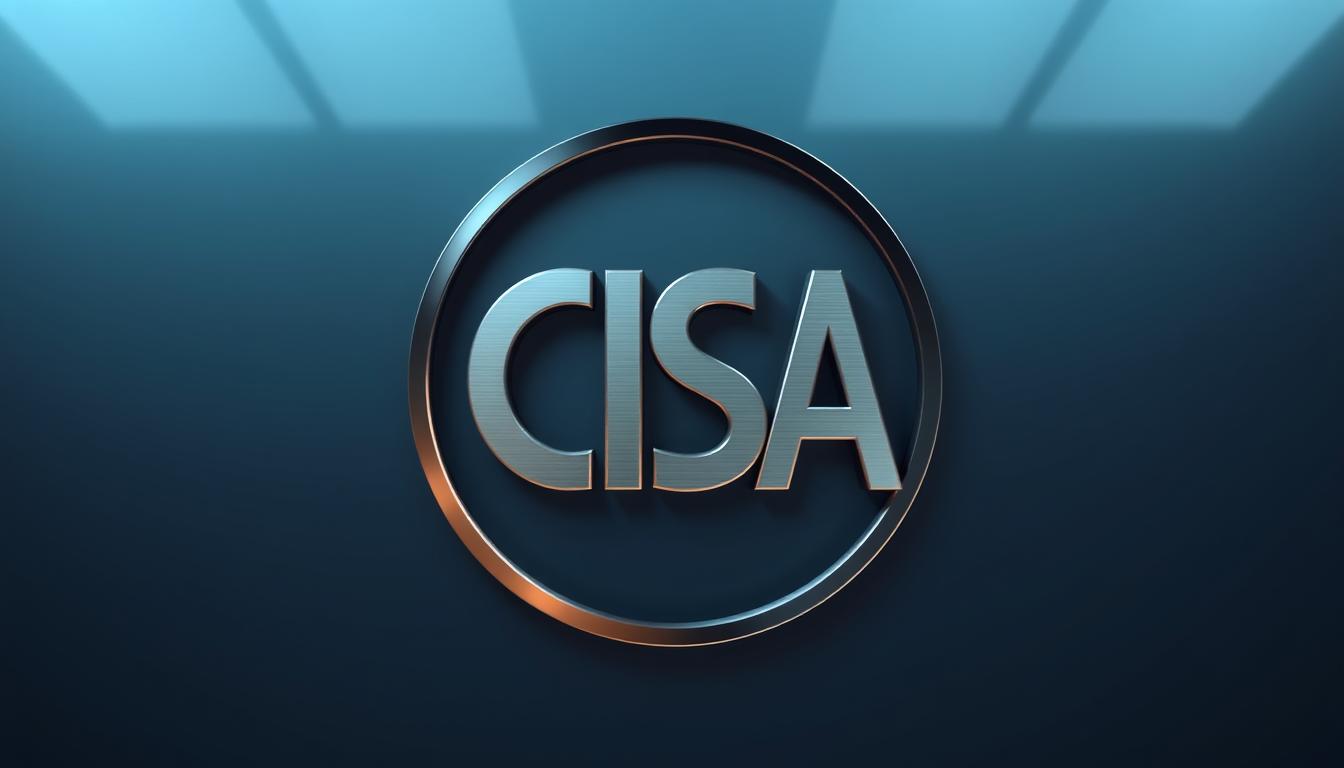In today’s rapidly evolving digital landscape, information systems security has become a top priority for organizations worldwide. With cyber threats on the rise, the demand for professionals who can effectively manage and audit information systems is skyrocketing. Did you know that according to ISACA, the governing body behind CISA, the number of CISA-certified professionals has grown significantly over the years, reflecting the increasing importance of this credential?
As you consider advancing your career in information systems auditing and security management, understanding the value of CISA certification is crucial. This globally recognized credential can transform your career by opening up new opportunities and demonstrating your expertise in managing and securing information systems.
Key Takeaways
- CISA certification is a globally recognized credential that can boost your career in information systems auditing and security management.
- The certification is governed by ISACA, a prestigious organization that sets standards for IT professionals.
- CISA-certified professionals are in high demand due to their expertise in managing and securing information systems.
- The certification requirements and exam preparation are crucial steps in becoming CISA-certified.
- Having CISA certification can lead to long-term career benefits and new opportunities in the field.
What is CISA – Everything you Need to Know
The CISA certification is a globally recognized credential that validates your expertise in information systems audit, control, and security. To understand the significance of CISA, it’s essential to delve into its definition, origin, and the role of ISACA in its administration.
Definition and Origin of CISA Certification
The CISA certification, or Certified Information Systems Auditor, is a prestigious credential that acknowledges your knowledge and skills in auditing, controlling, and securing information systems. Since its inception, more than 200,000 professionals have obtained this certification, demonstrating their expertise in vital roles related to audit, security, and control. The certification domains, subtopics, and tasks are developed through extensive research and validation by subject matter experts and industry leaders worldwide.
ISACA’s Role in CISA Certification
ISACA (Information Systems Audit and Control Association) serves as the governing body that develops, maintains, and administers the CISA certification. ISACA’s commitment to maintaining the highest standards for information systems auditing knowledge is evident in its rigorous certification requirements and continuous updates to the CISA framework. The organization provides a comprehensive ecosystem of resources, including study materials, training programs, and a professional network for CISA candidates and certified professionals. Key benefits of ISACA’s role include:
- Ensuring the CISA certification remains relevant through extensive research and global industry expert validation.
- Providing a comprehensive ecosystem of resources for CISA candidates and certified professionals.
- Maintaining the highest standards for information systems auditing knowledge.
The Importance of CISA in Today’s Cybersecurity Landscape

The CISA certification plays a crucial role in today’s cybersecurity landscape. As organizations face an increasing number of cyber threats, the demand for professionals who can protect their information systems is on the rise.
Growing Demand for Information Systems Auditors
The need for skilled information systems auditors is growing rapidly. As a CISA professional, you’ll be equipped to identify security vulnerabilities and implement controls to safeguard critical systems. This expertise is crucial in today’s digital age, where cyber threats are becoming more sophisticated.
How CISA Professionals Protect Organizations
CISA professionals serve as the front line of defense in protecting organizational information assets from internal and external threats. They evaluate risk levels across an organization’s technology infrastructure and recommend appropriate mitigation strategies. By doing so, they help organizations maintain the security and integrity of their information systems, ensuring business continuity and compliance with regulatory requirements.
Core Responsibilities of a CISA Professional

CISA professionals play a vital role in protecting information systems and ensuring business continuity through their expertise in auditing, risk management, and system protection. Their responsibilities are diverse and critical to the success of organizations in today’s complex IT landscape.
Auditing and Risk Management
One of the primary responsibilities of a CISA professional is to conduct thorough audits and manage risk effectively. This involves:
- Performing comprehensive security assessments to identify vulnerabilities and implement controls to mitigate risks.
- Evaluating the effectiveness of existing controls and recommending improvements.
- Assisting in the development and implementation of risk management strategies.
By doing so, CISA professionals help organizations protect their information systems and maintain the integrity of their operations.
Information Systems Protection and Business Continuity
CISA professionals are also crucial in ensuring the protection of information systems and maintaining business continuity. Their tasks include:
- Developing and evaluating business continuity plans to ensure organizations can maintain operations during disruptions.
- Involvement in disaster recovery planning to prepare for and respond to potential system failures or security breaches.
- Conducting policy reviews and development to ensure management of information systems aligns with organizational objectives and compliance requirements.
Through these activities, CISA professionals contribute significantly to the resilience and security of an organization’s IT infrastructure.
The 5 CISA Job Practice Domains
The CISA certification is built around five key domains that cover a broad spectrum of IT audit, control, and security practices. These domains are designed to assess your knowledge and skills in information systems auditing and security. Understanding these domains is crucial for any aspiring information systems auditor.
The five CISA job practice domains provide a comprehensive framework for information systems auditing and security practices. You can explore more details about these domains, particularly Domain 5, in this guide. This resource can help you deepen your understanding of the protection of information assets.
Information Systems Audit Process
The Information Systems Audit Process domain involves understanding the processes and procedures for auditing information systems. This includes planning, executing, and reporting on audit findings. You’ll become proficient in evaluating the effectiveness of IS controls and identifying areas for improvement.
IT Governance and Management
IT Governance and Management cover the management and governance of IT, including the alignment of IT with organizational objectives. You’ll learn to assess the organization’s IT strategy, policies, and procedures to ensure they are aligned with business goals.
Information Systems Acquisition, Development and Implementation
This domain focuses on the processes involved in acquiring, developing, and implementing information systems. You’ll gain knowledge on evaluating the risks associated with these processes and ensuring that they are properly controlled.
Information Systems Operations and Business Resilience
Information Systems Operations and Business Resilience involve understanding the processes that ensure the continuity of business operations. You’ll learn to assess the organization’s ability to respond to disruptions and maintain business continuity.
Protection of Information Assets
Protection of Information Assets is a critical domain that covers 26% of the CISA exam. Cybersecurity is a major focus within this domain, and you’ll become proficient in evaluating information asset security frameworks, standards, and guidelines. This includes assessing physical, environmental, and logical controls that protect information assets. You’ll also learn to assess identity and access management systems, network security, endpoint security, and data loss prevention. Additionally, you’ll develop expertise in security awareness training, attack methods, security monitoring, and incident response management.
CISA Certification Process

To become a certified CISA professional, you must meet specific eligibility requirements and follow a structured application process. The CISA certification is administered by ISACA, a global leader in IT governance, auditing, and security.
Eligibility Requirements
The eligibility requirements for CISA certification are centered around your professional experience and educational background. You need to have at least 5 years of professional experience in information systems (IS) auditing, control, or security work. This experience is crucial as it demonstrates your practical application of IS auditing, control, and security principles.
Application Process
The application process involves submitting your work experience details to ISACA for verification. You’ll need to document your work experience carefully, as ISACA requires verification of your 5 years of professional experience in the field. The experience requirements focus on practical application of information systems auditing, control, and security principles in real-world settings.
Work Experience Requirements
Your work experience should demonstrate progressive responsibility and complexity in information systems management and security. You can gain qualifying experience across various industries, as long as your role involves the core competencies covered by the CISA domains. ISACA may verify your experience through employer contacts, so accuracy in reporting your work history is essential to the certification process.
Key points to consider:
- You’ll need to document your work experience carefully, as ISACA requires verification of your 5 years of professional experience in the field.
- The experience requirements focus on practical application of information systems auditing, control, and security principles in real-world settings.
- You can gain qualifying experience across various industries, as long as your role involves the core competencies covered by the CISA domains.
- Your work experience should demonstrate progressive responsibility and complexity in management and security.
- ISACA may verify your experience through employer contacts, so accuracy in reporting your work history is essential to the certification process.
The CISA Exam: What to Expect

Knowing the details of the CISA exam can help alleviate anxiety and improve your preparation. As you gear up for the exam, it’s essential to understand its format, content, and requirements to ensure you’re well-prepared.
Exam Format and Structure
The CISA exam consists of 150 multiple-choice questions that test your knowledge across five job practice domains. You’ll have four hours to complete the exam, so it’s crucial to manage your time effectively.
Scoring and Pass Rates
The CISA exam is scored on a scale of 200 to 800, with a passing score of 450 or higher. Understanding the scoring system and the pass rates can help you gauge your performance and identify areas for improvement.
Exam Availability and Languages
You can access the CISA exam in multiple languages, including English, Chinese Mandarin Simplified, French, Japanese, Korean, and Spanish. The exam is administered at Pearson VUE testing centers worldwide, giving you convenient access regardless of your location. You’ll need to schedule your exam appointment no more than 90 days in advance.
Key benefits of the CISA exam include:
- You can access the CISA exam in multiple languages.
- The exam is administered at Pearson VUE testing centers worldwide.
- Remote proctoring options provide additional flexibility.
Preparing for the CISA Exam

Effective preparation is key to passing the CISA exam and becoming a certified information systems auditor. To achieve this, you need to understand the exam format, content, and the skills required to pass it.
The CISA exam is a comprehensive test that covers a wide range of topics related to information systems auditing, control, and assurance. To prepare effectively, you can utilize various study materials and training resources.
Official ISACA Study Materials
ISACA provides official study materials for the CISA exam, including the CISA Review Manual and online review courses. These materials are designed to help you understand the exam content and format.
The CISA Review Manual is a comprehensive guide that covers all the topics tested on the exam. It provides detailed information on information systems auditing, control, and assurance practices.
Training Courses and Practice Exams
In addition to official ISACA study materials, you can also use third-party training courses and practice exams to prepare for the CISA exam. Many training providers, such as Good e-Learning, offer high-quality CISA training courses that cover all the exam topics.
These courses often include expert-led videos, interactive knowledge checks, and full-length practice exams. You can also consider joining study groups or finding a study partner to discuss complex concepts and share resources.
- You have numerous options beyond official materials, including third-party training courses that offer different teaching approaches to accommodate various learning styles.
- Many training providers offer comprehensive CISA exam preparation packages that include video lectures, study guides, and interactive learning tools.
- Full-length practice exams are invaluable for assessing your readiness, identifying knowledge gaps, and developing effective test-taking strategies.
- Boot camps and intensive training programs can be effective if you prefer structured, instructor-led preparation for the information systems concepts covered on the exam.
- Consider joining study groups or finding a study partner to discuss complex concepts, share resources, and maintain motivation throughout your preparation.
Maintaining Your CISA Certification
To keep your CISA certification active, you’ll need to fulfill certain maintenance requirements. This involves staying committed to ongoing professional development and adhering to ISACA’s guidelines.
Continuing Professional Education (CPE) Requirements
You are required to earn a certain number of Continuing Professional Education (CPE) credits annually to maintain your CISA certification. This ensures that you stay updated with the latest knowledge and practices in information systems auditing. You must report your CPE hours through ISACA’s online portal, and your documentation may be subject to audit. This process helps in demonstrating your commitment to professional standards and current knowledge.
Annual Maintenance Fees and Compliance
In addition to CPE requirements, you’ll need to pay an annual maintenance fee of $85 ($45 for ISACA members) to keep your certification active. The certification maintenance process also includes an annual attestation confirming your compliance with ISACA’s Code of Professional Ethics. Maintaining your certification not only demonstrates your professionalism but also your commitment to ethical practices. Failure to meet these requirements may result in the suspension of your certification, requiring additional steps and fees for reinstatement.
- Pay an annual maintenance fee of $85 ($45 for ISACA members).
- Report CPE hours annually through ISACA’s online portal.
- Comply with ISACA’s Code of Professional Ethics through annual attestation.
Career Benefits of CISA Certification
CISA certification is a highly respected credential that can significantly enhance your career prospects in IT audit and security. By obtaining this certification, you demonstrate your expertise and commitment to the field, making you a more attractive candidate to potential employers.
The benefits of CISA certification are multifaceted. Not only does it give you a competitive edge in the job market, but it also increases your value within your current organization. The knowledge and skills you acquire through the certification process can lead to improved job performance and a higher level of credibility among your peers and superiors.
Salary Expectations for CISA Professionals
CISA professionals often enjoy higher salary expectations compared to their non-certified counterparts. The certification is recognized globally and is associated with a high level of competence in information systems auditing, control, and security. As a result, CISA-certified individuals are often considered for higher-paying roles within their organizations.
Some of the key benefits that contribute to increased salary expectations include:
- Earning a competitive salary due to your recognized expertise
- Having access to a wider range of job opportunities
- Being considered for senior roles or leadership positions
Career Advancement Opportunities
The CISA certification opens doors to various career advancement opportunities. With this credential, you can aspire to roles such as IT Audit Manager, Information Security Manager, and even Chief Information Security Officer. The certification also provides access to ISACA’s professional network, connecting you with industry leaders and potential employers worldwide.
Some of the career advancement opportunities available to CISA professionals include:
- Transitioning into consulting roles or specialized positions in compliance and risk management
- Advancing to leadership positions within your current organization
- Exploring new career paths in the cybersecurity and audit sectors
Conclusion About Everything you Need to Know :
With a deep understanding of CISA, you’re now poised to elevate your career in information systems security and management. You’ve gained a comprehensive understanding of what CISA is and why it’s a valuable certification in today’s digital landscape. Your CISA certification will position you as a trusted authority in information systems and security. To achieve long-term success, remember that ongoing learning and professional development are essential. By obtaining Certified Information Systems Auditor certification, you’ll have a solid foundation for achieving your professional goals.
